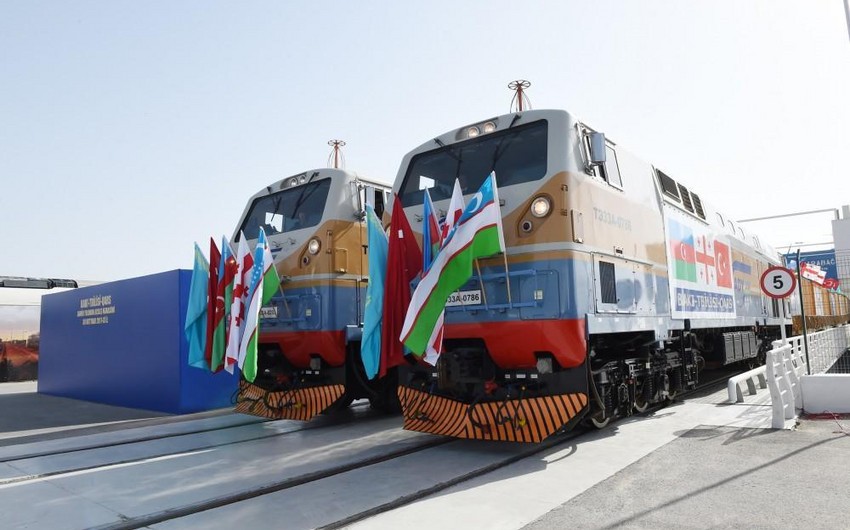Baku-Tbilisi-Kars (BTK) railway line’s playing role of an alternative in cargo transportation from China to Europe is among Turkey’s priorities, Selçuk Çolakoğlu, Director of The Turkish Center for Asia Pacific Studies, told Report.
According to him, Ankara considers the BTK as an important route for transportation of Turkish goods to Middle Asian countries: ‘On April 10 Turkish President Recep Tayyip Erdoğan brought the need for more effective and intensive use of BTK to agenda on the extra-ordinary meeting of Turkic Council via videoconferencing. The Turkish President said there must be efforts for BTK to transport an additional 3,500 tonnes of cargo per day. For this purpose, the member countries of the Turkic Council should simplify some issues such as drivers’ visas.
Reduction of duties in Ro-Ro lines, submission of necessary additional documents will increase the BTK’s capacity. There are some delays in the usual freightage due to coronavirus pandemic. However, as BTK can provide contactless transportation, it may take an important mission among the Turkic Council countries.
BTK was launched on October 30, 2017. The railway line provides a connection between the railway networks of Asia and Europe. This is the shortest way not only among the three countries but also between Asia and Europe. BTK reduces the time for cargo transportations by more than double.
The railway line simplifies the access of Turkmenistan, Kazakhstan, Uzbekistan, Kyrgyzstan, Tajikistan, and Afghanistan to Europe and world markets. The 504 km-part of the BTK, which is 846 km in length, passes through Azerbaijan, 263 km through Georgia, and 79 km through Turkey.
This route is planned to carry 5 million tonnes of cargo in the first stage, 17 million tonnes in the next steps and larger volumes in the following stages.


 https://static.report.az/photo/0a11562d-9ce0-45ca-b026-824fe91d62d7.jpg
https://static.report.az/photo/0a11562d-9ce0-45ca-b026-824fe91d62d7.jpg

